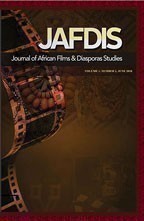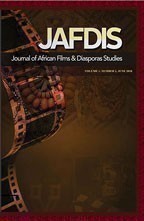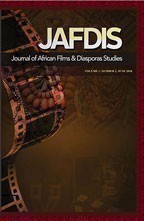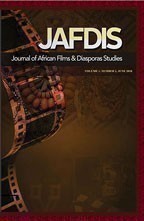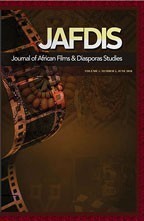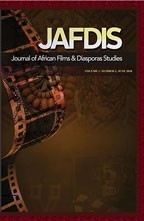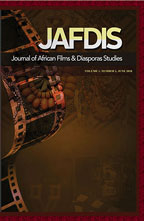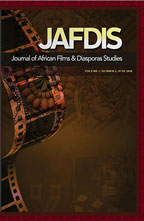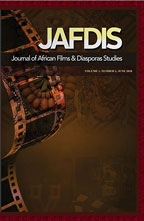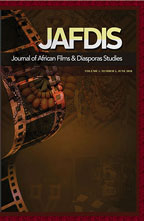
 editor@adonis-abbey.com
editor@adonis-abbey.com ![]() UK: 0207 795 8187 / Nigeria:+234 705 807 8841
UK: 0207 795 8187 / Nigeria:+234 705 807 8841
Journal Categories
- JOURNALS
- JOURNAL OF AFRICAN FILMS AND DIASPORA STUDIES (JAFDIS) (RESEARCH ON AFRICAN FILMS, DIASPORA STUDIES, PERFORMANCE ARTS AND COMMUNICATION STUDIES)
- EDITORIAL BOARD
- EDITORIAL GUIDELINE
- REVIEW PROCESS
- PUBLISHING ETHICS STATEMENT
- SUBSCRIPTION
- SEARCH JOURNALS
- LATEST NEWS
- CALL FOR PAPERS
- SUBSCRIBE FOR NEWSLETTER
- UNSUBSCRIBE FOR NEWSLETTER

Adonis-Abbey's Journal Section
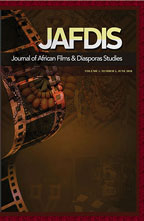
Journal of African films and Diaspora Studies (JAFDIS) (Research on African Films, Diaspora Studies, Performance Arts and Communication Studies)
Publication Frequency: Quarterly (Four times a year) ISSN: 2516-2705 E-ISSN: 2516-2713. SCImago Journal Ranking for 2023: Quartile: Q2; H-Index: 2; Citescore: 0.12
Journal of African Films and Diaspora Studies (JAFDIS) (Research on African Films, Diaspora Studies, Performance Arts and Communication Studies) Volume 6, Number 2, June 2023
Today, the industry in media, communication and journalism has seen a big growth in the use of social media during wars like, Russian Ukraine war as well as the new war in Sudan. Russia’s invasion of Ukraine has shell-shocked the world. A particular threat of social media is that propaganda campaigns can reach online exposure at an unprecedented scale. It is a fact to consider how social media has been weaponized, both before and during the hostilities. Russia’s invasion of Ukraine has been described as the first full-blown “social media war” (Suciu, 2022). It also charts new territory in other ways because of the digital transformation: it is the first full-blown cyber war and the first hacker war featuring both state and non-state actors attacking the information infrastructures of the combatants (Conger and Satariano, 2022). While social media has become a means of shaping public perceptions of the war, in reality, it is not the most reliable source for news, especially dur............
Journal of African films and Diaspora Studies (JAFDIS) Volume 5, Number 3, September 2022
It is interesting to note that the world will never forget Mr George Flyod’s dying story in America, a story covered by a 17-year-old teenager Darnella Frazier who filmed the incident which almost brought the world to its knees and posted it on Facebook (social media platform). While still digesting the American story, the world was hit with COVID-19 pandemic which claims from various media and government institutions stated that the pandemic emerged from China. In Africa, especially Nigeria, the film medium is engaged, like in other climes, in unveiling experiences. As a result, in this publication, you are going to enjoy the reading of articles presenting the African creative industries’ objective on drawing our attention of indigenous filmmakers who are producers of the historical genre of film from Africa’s historical pool for the edification, entertainment, and education of African audience, as well as keeping records for posterity. In support of this, one of the articles............
Journal of African Films, Diaspora Studies, Performance Arts and Communication Studies (JAFDIS) Volume 4, Number 3, December 2021
This is a celebratory publication since it is the first one after SCOPUS has accepted to index the journal of African Films and Diaspora Studies (JAFDIS) in the month of September 2021, which we set up in 2018. The Editorial Board and its support staff celebrate with all those authors whose articles has been accepted and published like, an examination on sexual harassment activities in the South African professional performing arts industry, South African discourse on health communication: assessing the intersection of HIV/AIDS messages; social media & television program and many more as listed on the publication. Favour seems to have followed JAFDIS since its debut in 2018. When it first started it began as a bi-annual publication (twice a year) but became triennial (three times a year) after only one year (typically it takes us years to nurture a journal to move up from one frequency to another). When we first submitted the journal to SCOPUS for evaluation, it was reje............
To subscribe to any of the journals, Please Email Us.



